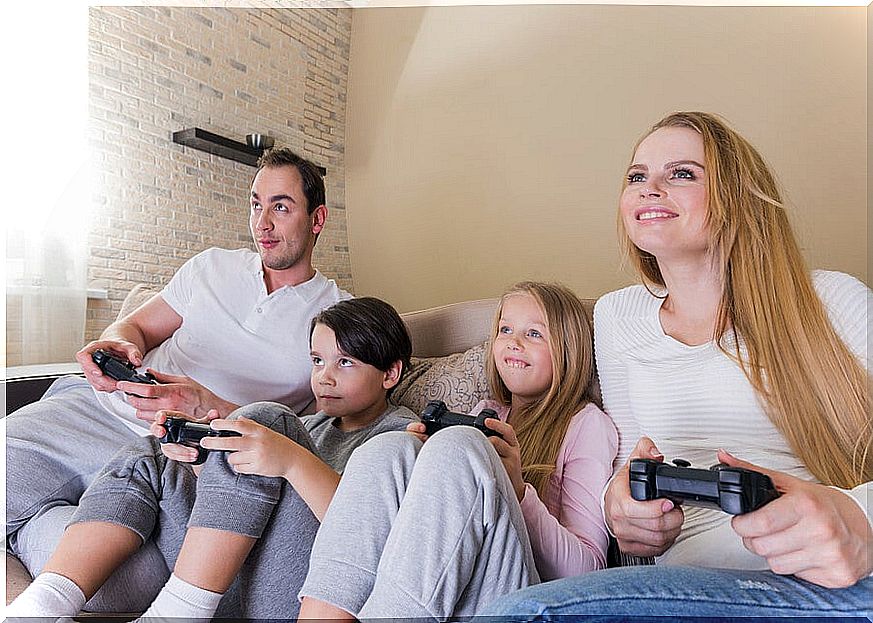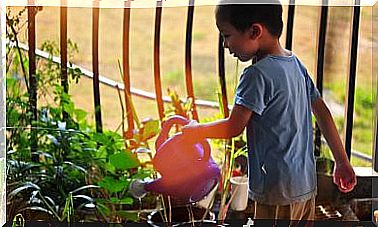Should We Be Friends With Our Children?

Today, the relationship between parents and children has changed; It has ceased to be an authoritarian, strict relationship with marked limits to become a closer and more informal relationship. Today, we are more friends with our children than parents. What’s more, many parents argue that being a confidant and colleague of their children is a good way to educate them.
The relationship between parents and children today
The relationship that most parents have with their children in our time, even in its most complicated stage, such as adolescence, is characterized by being a closer relationship. Today’s parents seek to be more in contact with their children, to spend time with them, to be aware of what they do, their fashions, and share outings and hobbies.
Many parents seek to establish a peer-to-peer relationship with their children. And, sometimes, it is not easy to distinguish who, if parents or children, are the ones who set the limits and have the authority.
The children of past generations asked permission both to go out and to do. Today they are only limited to informing or advising. Even the way children address and speak to their parents has changed; currently it is more from you to you.

Why it is not advisable to be friends with our children
While parental relationships have changed from other times in our history, parents should be cautious in establishing and adopting a parenting style and relationship with their children in terms of ‘friendship’.
In the first place, there are certain social roles that have a reason for being, that is, they fulfill a certain function in relationships between people. With which, we must not lose sight of the fact that there is a social role that is to be parents, and parents must inspire authority and establish limits, always, of course, on the basis of dialogue, trust, respect and love. .
Second, parents cannot become friends with their children because that would imply holding that role in each and every circumstance of life, and this is impossible. It is precisely the children who, on occasions, demand authority, presence and adult reference. They are the ones who need that containment based on maturity and the security of experience.
So the answer to the question of whether we should be friends with our children is “no . ” Alicia Banderas, in her book Little Tyrants , argues that parents cannot be friends with their children and that their educational task is to find the balance between authority and affection. The author affirms that parents must know how to set limits in time to prevent their children from becoming true tyrants.
Establishing a friendly relationship with them is not the same as being friends with our children
Parents, instead of being friends with their children, can try to build a friendly relationship with them without moving from their roles as parents. Now, to establish a friendly relationship with our children we should take into account that:
- Dialogue, reason and negotiate limits, but setting them is essential. Parents must know how to say no and give their children enough reasons for it.

- Show affection, closeness, body contact. Without having to be friends with their children, parents can create a loving relationship with them that encourages dialogue and fluid communication.
- Although there are friends for confidences, this does not mean that children cannot share with their parents their concerns, their needs, their joys and fears. For this, it is important that parents generate enough trust in their children so that they feel that they can share their problems. But also knowing how to accept the opinions and advice that parents give them.
In short, a friendly relationship with our children is …
A healthy, open, honest, flexible and communicative parent-child relationship. But also, and no less important, a relationship based on respect for parental authority and acceptance by children of justified and consensual limits.
In a friendly and not friendly relationship between parents and their children, it is possible to reconcile authority and love. And this is essential for children to understand that the decisions and actions of parents have no other intention than the good, safety, and happiness of their children.










